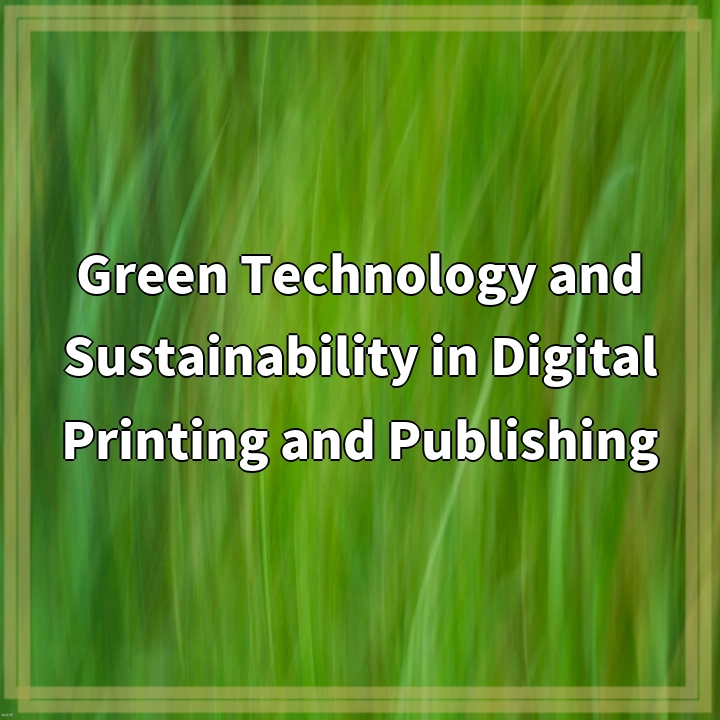
What is Green Technology and Sustainability in Digital Printing and Publishing?
Green technology and sustainability in digital printing and publishing refers to the adoption of environmentally friendly practices and technologies within the digital printing and publishing industry. It involves minimizing the environmental impact of printing and publishing processes and promoting sustainable alternatives.
Real-World Problems Associated with Green Technology and Sustainability in Digital Printing and Publishing
While digital printing and publishing have brought numerous benefits in terms of cost efficiency, speed, and accessibility, they also present environmental challenges. Some of the real-world problems associated with green technology and sustainability in digital printing and publishing include:
1. Energy Consumption and Carbon Footprint
Digital printing and publishing operations require significant energy consumption, contributing to greenhouse gas emissions and climate change. High-power printing presses, data centers, and other related equipment consume large amounts of electricity, often derived from non-renewable sources.
2. Paper Waste and Deforestation
Although digital publishing has reduced the need for physical paper copies, the industry still utilizes paper for various purposes such as packaging, promotional materials, and office operations. The production and disposal of paper contribute to deforestation, habitat destruction, and waste generation.
3. Chemical Usage and Pollution
Printing processes involve the use of various chemicals such as inks, solvents, and cleaning agents. Improper handling and disposal of these chemicals can result in water and air pollution, posing risks to human health and the environment.
4. Electronic Waste
As technology evolves, older printing and publishing equipment becomes obsolete, leading to electronic waste. Improper disposal of electronic waste can release hazardous substances into the environment and contribute to the depletion of natural resources.
5. Lack of Industry Standards and Regulations
There is a lack of standardized guidelines and regulations specific to green technology and sustainability in digital printing and publishing. This makes it challenging for businesses to implement sustainable practices consistently and for consumers to make informed choices.

Solutions to Green Technology and Sustainability Issues in Digital Printing and Publishing
1. Energy Efficiency and Renewable Energy Adoption
Implementing energy-saving measures and upgrading equipment to more energy-efficient models can reduce the carbon footprint of digital printing and publishing. Additionally, transitioning to renewable energy sources, such as solar or wind power, can further minimize environmental impact.
2. Sustainable Paper Sourcing and Reduction
Choosing paper from sustainable sources and promoting recycling and responsible paper waste management can help mitigate the negative effects of paper usage. Adopting digital alternatives and optimizing printing processes can also reduce paper consumption.
3. Environmentally Friendly Printing Practices
Using eco-friendly inks, reducing chemical usage, and implementing proper waste management techniques can help minimize pollution caused by printing processes. Embracing non-toxic, biodegradable, and vegetable-based inks can significantly reduce environmental harm.
4. Implementing Effective Electronics Recycling Programs
Encouraging the responsible disposal and recycling of electronic equipment can prevent electronic waste from ending up in landfills. Partnering with certified e-waste recycling facilities ensures that valuable materials are recovered and harmful substances are safely managed.
5. Advocating for Industry Standards and Regulations
Promoting the development of industry-wide standards and regulations specific to green technology and sustainability in digital printing and publishing can create a level playing field. This allows businesses to adhere to sustainable practices and enables consumers to make informed choices.















